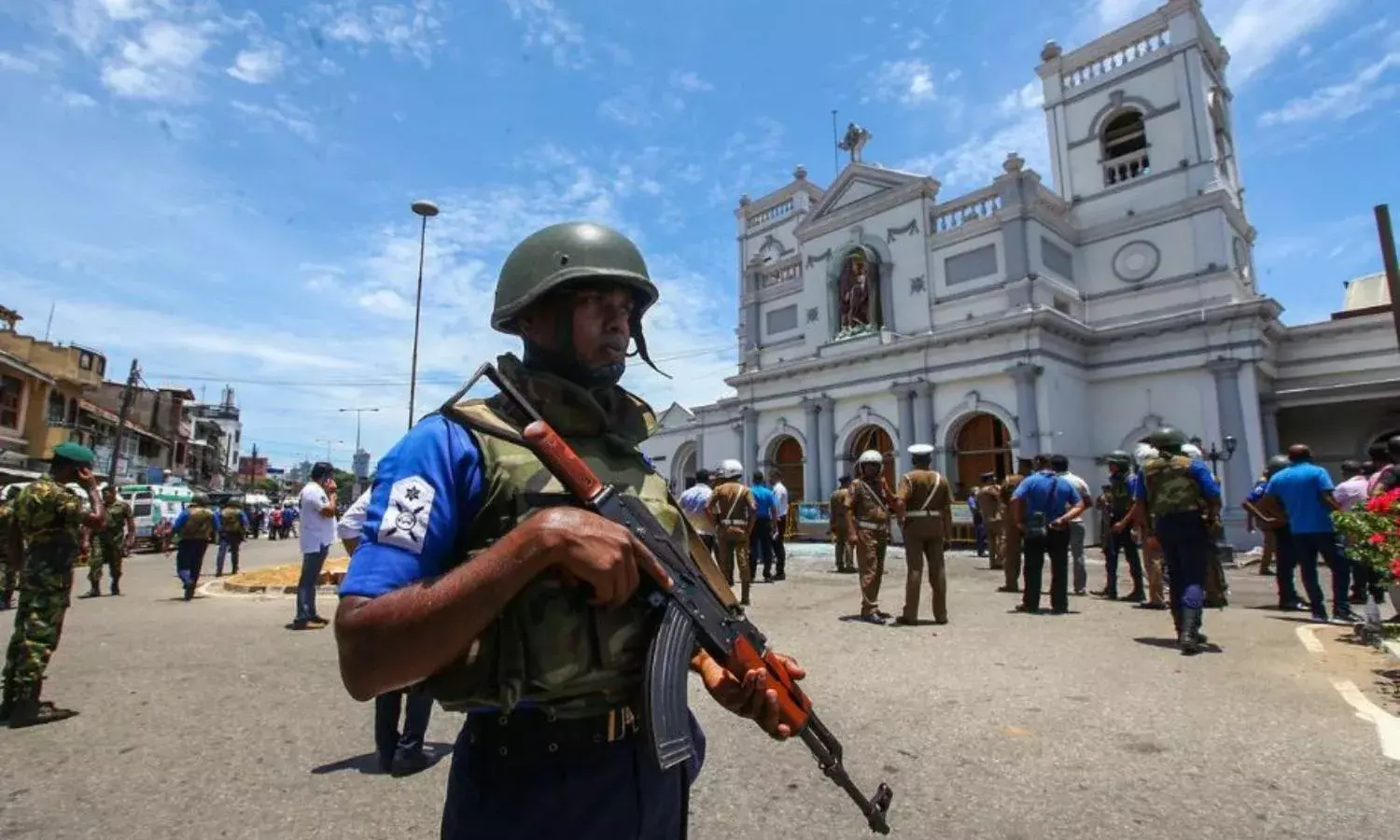When Church Bells Toll in Sri Lanka They Carry a Stark Warning for India
Radical Cultural Nationalism is the negation of celebration of life;

Former Ambassador
A senior Sri Lankan minister suggested to The Guardian that the coordinated bomb attacks on Easter Sunday on churches and five-star resorts on the main drag of Colombo and targets outside the capital could have been the work of terrorists or religious extremists.
Meanwhile, an unattributed remark by a purported police official in Colombo is also floating around, lapped up by many Indian newspapers — and duly embellished — that a Muslim jihadist group is behind the attack.
Fingers have been instinctively pointed at the ISIS or al-Qaeda — although it is common sense that these terrorist organisations had everything to gain by claiming responsibility for the attack at a juncture when US President Donald Trump is bragging that they have been erased from the face of the earth.
Clearly, the Sri Lankan Government, which has been caught off guard, is reserving judgements. The point is, no one has yet claimed responsibility.
What emerges so far are four things.
One, the terrorists or religious fanatics picked ‘soft targets’ — Catholic churches that were sure to be packed with worshippers on the most important day in the Christian calendar and three hotels full of foreigners, especially Western tourists. The intention was to cause maximum loss of lives. No strategic assets were targeted.
Two, stemming from the above, there is apparently an ‘anti-Christian slant’ in the choice of targets, which was probably intended to draw international attention and cause great embarrassment to the incumbent government.
Three, there was a high degree of coordination in the attacks, which points to local mobilisation. Only natives could have handled the logistics of such an operation. Yet, the operation was fairly simple — targeting places that are unguarded or lightly guarded. The speed with which the Sri Lankan police tracked down the vehicle used in the attack in Colombo, which had ‘suspiciously moved around’ in the city, even betrays a lack of professionalism on the part of the terrorists.
Finally, the government imposed a dusk-to-dawn curfew. Again, the government has refused to announce the names of the suspects who have been rounded up so far.
Taken together, the government apprehends that Sunday’s events might trigger more violence (backlash). The situation harks back to the Black July in 1983, when communal riots broke out in Sri Lanka as a response to a deadly ambush by the LTTE in which several Sri Lankan army soldiers were killed, triggering in turn anti-Tamil pogroms and rioting in Colombo, which then spread to other parts of the country.
Over seven days, mobs attacked, burned, looted and killed Tamil targets. Anywhere between 400 and 3,000 Tamils were killed in the pogrom. The economic cost of the riots was estimated at $300 million. Black July marked the beginning of the Sri Lankan civil war.
Time past is useful to understand time present in a country such as Sri Lanka with such a complex and troubled history where, by sowing terror, perpetrators would hope to reap division in a society that has endured horrific violence in the past. The country is home to multiple ethnicities and religions, with the Buddhist majority (70.1 per cent, according to the 2012 census) living alongside sizeable Hindu (12.6 per cent), Muslim (9.7 per cent) and Christian (7.6 per cent) minorities. Indeed, Sri Lanka’s failure to come to terms with its violent past may form part of the context for Sunday’s attacks. Swirling ethnic animosities lurk below the surface and for some the war remains unfinished business.
Galagoda Aththe Gnanasara, the controversial leader of the Sinhalese Buddhist nationalist organisation Bodu Bala Sena (Buddhist Power Force or BBS) who is referred to as ‘Thero’, The Venerable, and is undergoing a six-year prison term for inciting racial violence and hatred, is the living embodiment of the Sri Lankan tragedy.
Sinhala-Buddhist nationalism, which has always been an undercurrent in Sri Lanka, is thriving, although the brutal civil war has ended. New ‘enemies’ have replaced the Tamil Hindus — Muslims and Christians.
President Maithripala Sirisena was forced to declare an island-wide state of emergency last year in March following a surge in violence targeting Muslims and their properties and mosques in Kandy and adjoining areas, which brought out the simmering ethnic tensions.
Gnanasara and his followers seek a ‘Buddhist Rashtra’ in Sri Lanka where minorities can reside in the country ‘in a manner that doesn’t threaten the majority race and its identity’. Curiously, the BBS celebrated the formation of the Modi government in 2014 and claimed that it was seeking a tie-up with the RSS.
“Discussions are on at a high level with the RSS… We think we can have a Buddhist-Hindu peace zone in this part of the world,” Gnanasara told reporters in Colombo on October 7, 2014. President Sirisena has not succumbed to the pressures being exerted by Sinhala-Buddhist supremacists to release Gnanasara from prison and instead allowed the law to take its course. For Sirisena, it is a difficult choice, since former President Mahinda Rajapaksa and his brother Gotobhaya had facilitated the emergence of Bodu Bala Sena. And to cap it all, a presidential election is due this year in Sri Lanka, and a General Election in 2020.
Sri Lanka is paying a high price for the ascendancy of militant cultural nationalism. When church bells toll in Sri Lanka, mourning the death of hundreds of Christian worshippers on Easter Day, they carry a stark warning to plural societies, especially India, that radical cultural nationalism is the negation of the great celebration of life, which is the quintessence of all religions.

